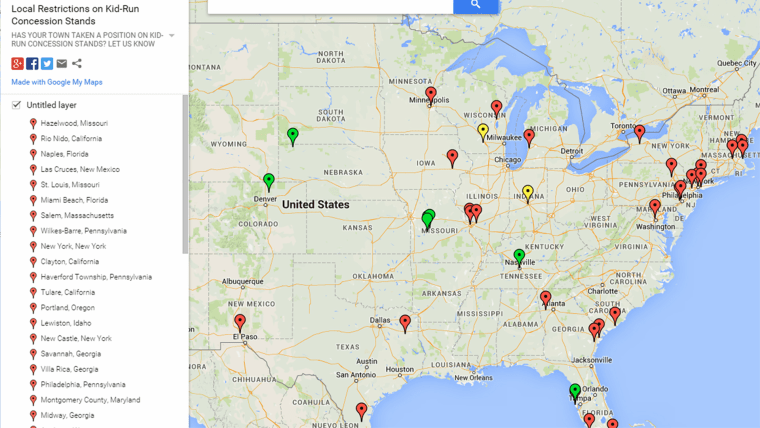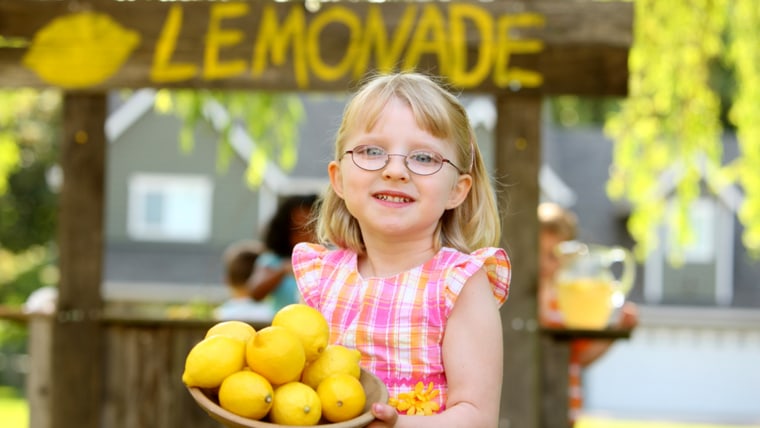Lemonade. The ice-cold drink has long been sold on hot summer days by children trying to make some coin. But every year, at least one story grabs national headlines after a pop-up lemonade stand runs afoul of the law, souring young entrepreneurial spirit.
This week, it happened when two sisters in Overton, Texas, put up a lemonade stand to raise money for a Father’s Day gift. They closed their stand after a code enforcement officer asked if they had a permit and, after obtaining one, learned they also needed permission from the health department.
Last year, a Florida man asked police to shut down a 12-year-old boy’s lemonade stand, calling it an “illegal business” that caused excessive traffic, noise and trash, and reduced his property value. And years before that, Georgia police shut down a lemonade stand run by three girls because they didn’t have a business license or a food permit. Authorities at the time said they couldn't vouch for how the lemonade was made, "so we acted accordingly by city ordinance."
The cases are so prevalent that attorney David Roland made a Google map marking many of the locations where kid-run concession stands have been closed over the past two decades.

“It’s not clear that there’s any one reason that these government officials have become more motivated to interfere with kid-run concession stands,” said Roland, director of litigation and co-founder of the Freedom Center of Missouri.
More often than not, it's not law enforcement instigating the action, but rather a neighbor or someone who views the kids’ business as competition, he said.
“Generally speaking, local government officials have felt more and more pressure to be responsive to squeaky wheels," he said.
So what’s a grade-school entrepreneur to do?

Clyde Carter, police chief in Overton, Texas, the town in the spotlight over this week’s lemonade war, advised parents to check in with their local authorities.
“You just want to make sure you’re doing everything correctly. Most cities do have these kinds of codes. And most states have these laws on the books,” he said.
He pointed out the health permit required for anyone selling food is actually part of Texas law, not a town ordinance.
“We want to work with kids, and I’d like to see these kids succeed,” he said, noting that Overton officials waived the $150 fee for the peddler’s permit obtained for the two sisters to run their stand. The girls, Andria Green, 8, and her sister, Zoey, 7, will set up another stand Saturday but this time, to avoid another run-in with the law, they will offer the drink for free and only take tips.
Roland agreed that checking in with their local government officials would be the best thing to do, legally.
“Say, ‘Our children are planning to have a lemonade stand. I’ve heard that some cities have been cracking down on this. What is the city’s formal position on this so we know whether there are any permits we need to get,'” he said. “Ask those questions because they can help parents steer clear of potential violations.”
Personally, however, Roland said he wouldn’t bother to check, especially if the concessions will be run on personal property.
“I feel like we need parents who are willing to stand up and say that we don’t need permits or the government’s permission to engage in such a harmless and traditional aspect of American childhood as selling lemonade to friends and neighbors out on the sidewalk,” he said.
Follow TODAY.com writer Eun Kyung Kim on Twitter or on Google+.